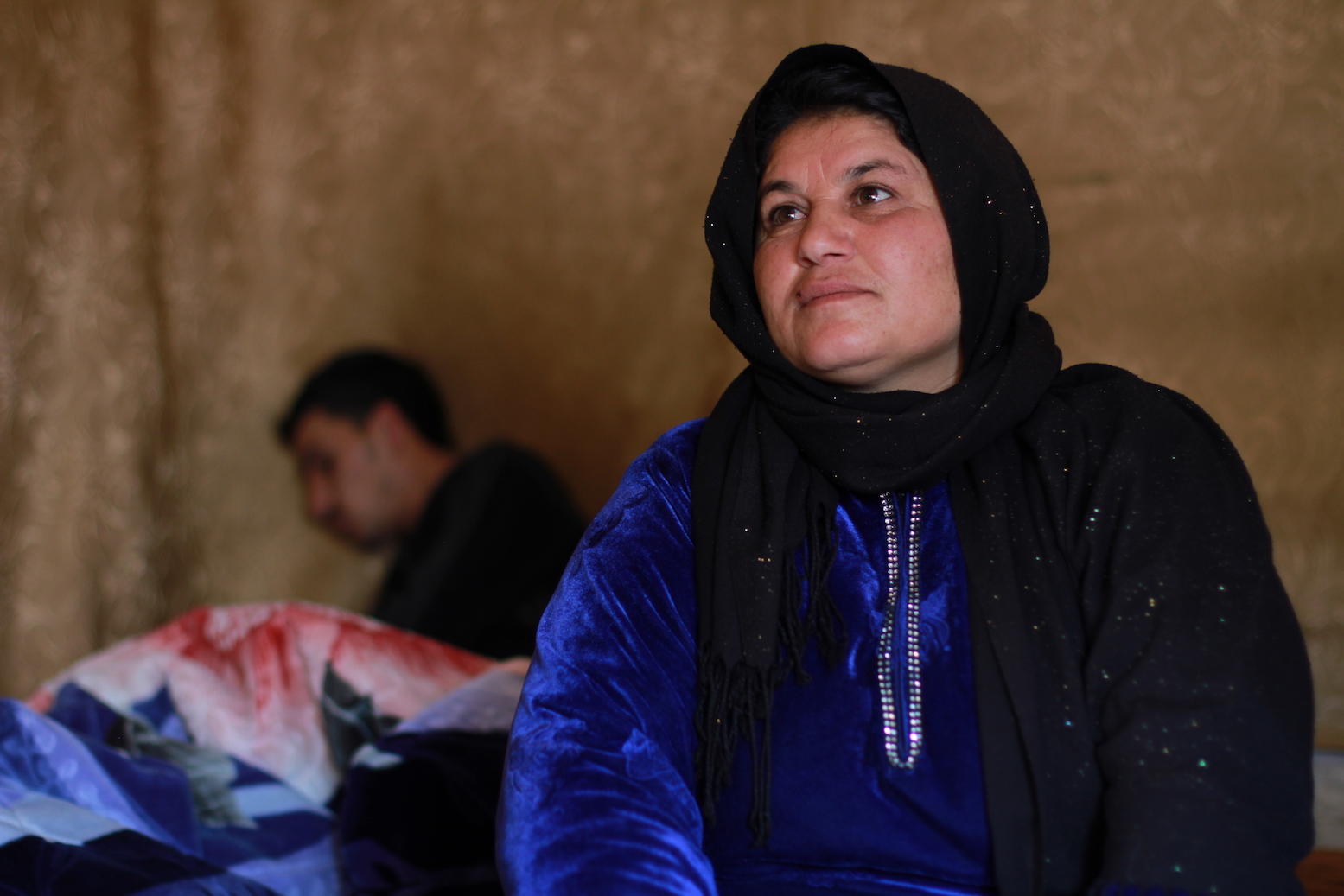UNHCR’s cash assistance programme, generously funded by donors including the U.K.’s Department for International Development (DFID), continues to be a lifeline for thousands of refugees across Lebanon.

Lebanon. Refugee woman and her bedridden son sit in their tent in the Bekaa. // 54-year-old Nasra, who now lives in an informal settlement in the town of Dalhamiye in Lebanon’s Bekaa, fled from Homs, Syria, with her husband and children in 2011, at the onset of the Syrian crisis. Behind her sleeps her eldest son Ahmad who is 17 years old, and who has become temporarily bedridden following an accident at the construction site he was working in. Ahmad became the family’s sole breadwinner after his father Youssef was diagnosed with cancer and was therefore no longer able to work. This family receives monthly cash assistance from UNHCR to help them make ends meet. Nasra explains she uses the money she receives to buy medicine, food and other essentials for her family. (c) UNHCR / Elie Fahed
Since the onset of the war over six years ago, more than one million Syrians have sought refuge in neighboring Lebanon. Years in exile have depleted the few savings they had, and their limited access to the formal labor market is deepening their poverty, and exposing them to exploitation and other protection risks. This makes programmes such as UNHCR’s cash assistance all the more vital for keeping the most vulnerable refugee families afloat. This programme, which was generously funded by donors including the U.K.’s Department for International Development (DFID), continues to be a lifeline for thousands of refugees across Lebanon.
From the onset of the Syrian crisis more than six years ago, 54-year-old Nasra had to flee with her husband Youssef* and children from their hometown of Homs. Leaving with nothing but the clothes on their backs, they moved from one city to another inside Syria in search of safety. Eventually the family was compelled to leave their beloved country for the sake of their children.
“It was the right decision, but it was very difficult,” said Nasra seated inside her tent in an informal settlement in the town of Dalhamiye, in Lebanon’s Bekaa Valley.
Despite being safe from the violence raging inside Syria, the family was far from leading a good life in Lebanon.
Some months after arriving, tragedy struck once more as Nasra’s husband Youssef was diagnosed with cancer. Unable to afford the necessary treatment, the family had to borrow money to pay for the surgery that Youssef urgently needed.
For most refugees in Lebanon, savings have been depleted by years of economic hardship and limited access to work. As a result, over 70 per cent of the refugee population are living below the poverty line, and 90 per cent have debts with friends, neighbours and shop owners, owing an average of USD 857.
As Youssef’s medical condition made it difficult for him to work, Nasra’s eldest son Ahmad* became the family’s sole breadwinner. He found a low-paying job in construction, but the safety standards at the worksite were poor.
One day, the young man fell from a rooftop and broke both his right leg and arm. He is now bedridden for the next two months.
“Our situation is getting more difficult by the day,” sighed Nasra.

Lebanon. Refugee woman sits in her tent with her baby and her bedridden son. // As she carries her youngest baby of 11 month in her lap, her eldest son Ahmad sleeps close to her. (c) UNHCR / Elie Fahed
In this desperate situation, the family’s only lifeline is UNHCR’s programme of cash assistance. Through this programme, thousands of refugee families such as Nasra’s are enabled to keep their heads above water through monthly transfers of USD 175.
Nasra uses the money she receives to buy medicine, food and other essentials for her family. In Lebanon, with its high cost of living, this support is an essential element preventing refugee families from sinking further into debt and despair.

Lebanon. Refugee woman prepares a meal in front of her tent in the Bekaa. // 54-year-old Nasra peels potatoes in front of her tent in an informal settlement in the town of Dalhamiye in Lebanon’s Bekaa as two refugee children are next to her. Nasra fled from Homs, Syria, with her husband and children in 2011, at the onset of the Syrian crisis. Nasra’s husband was diagnosed with cancer and is therefore unable to work, and her eldest son is bedridden following an accident at the construction site he was working in. This family receives monthly cash assistance from UNHCR to help them make ends meet. Nasra explains she uses the money she receives to buy medicine, food and other essentials for her family. (c) UNHCR / Elie Fahed
With generous contributions from donors like DFID, UNHCR’s cash programme was able to help close to 30,000 families in situations similar to Nasra’s in 2016 and continues to assist them in 2017.
Last year, DFID was the third largest donor to UNHCR Lebanon’s programmes in response to the Syria situation. DFID’s contributions were essential to supporting the most vulnerable refugees to meet their basic needs through cash assistance, provision of life-saving health care and vital protection activities for children and survivors of sexual and gender-based violence.
*Names changed for protection purposes
شارك على الفيسبوك شارك على تويتر